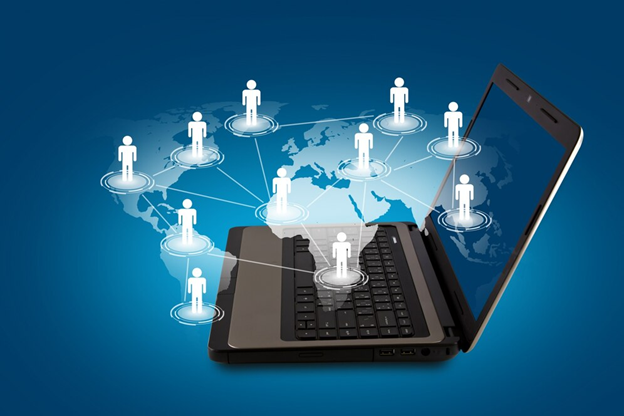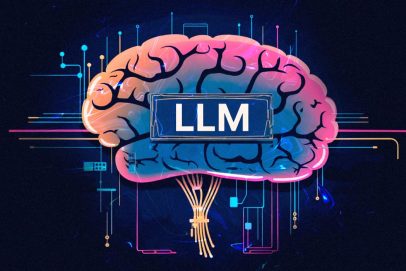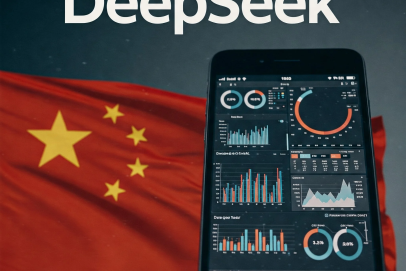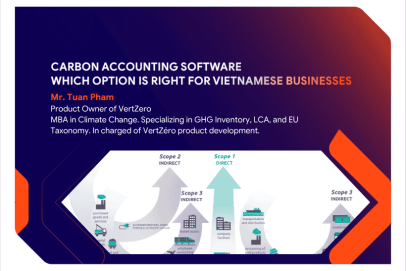Digital Citizen Applications
Digital citizen applications mark a significant step forward in the global digital revolution. With their convenience and high interoperability, these applications are not simply new technology but also an opportunity to improve the quality of life and create a more connected society.
1. Definition of “Digital Citizen”
Before delving into digital citizen applications, we need a clear understanding of the “Digital Citizen” concept. When hearing the phrase “Digital Citizen,” people often focus on the “digital” part and think about the intelligence, digitization ability, and speed of information technology, which they fear will replace people in tasks that used to take a lot of time to complete manually. However, “Digital Citizen” is not about having people’s tasks and jobs replaced by technology. According to the “Digital Transformation” handbook issued by Vietnam’s Ministry of Information and Communications, a “Digital Citizen” is someone equipped with digital capabilities to live in a fully digitized environment. Specifically, a digital citizen should possess the following nine qualities: Ability to access digital information sources; ability to communicate in a digital environment; basic digital skills; ability to buy and sell goods online; conduct of ethical standards in the digital environment; ability to physically and psychologically self-protect against influences from the digital environment; awareness of rights and responsibilities in the digital environment; understanding of personal identification, authentication, and data; understanding of privacy in the digital environment.
One of the solutions to support such digital citizens is the deployment of digital citizen applications. A digital citizen application is an application running on smart mobile devices with the following main functional modules: User login authentication, reports and feedbacks, online public services, news, tourism information portal, digital map, e-wallets, etc.
2. Benefits of digital citizen applications
Effective data management
With the help of digital citizen applications, citizens’ information and data are managed more systematically and effectively. The application is designed to create convenience in management by synthesizing and organizing data collected from various fields into a single source.
Enhanced security and confidentiality
The rapid advancement of application development and construction technology allows for the incorporation of the most advanced security solutions into applications, preventing attacks on the personal information of digital users, which is an extremely complicated problem nowadays.
Easy access to public services
Integrating all necessary public services into a single application effectively saves time for citizens, allowing them to apply for services in various fields, from healthcare and education to finance, with simple operations. By simply logging into a digital citizen application, a citizen can conveniently apply for online public services with pre-filled forms, thanks to the availability of the data warehouse.
Reduced administrative burden
The automation capability of digital citizen applications help eliminate administrative procedures that used to be done manually. Now, public service units and organizations only need to receive and analyze information that has been processed by the system, saving time and labor costs related to citizen data processing.
3. Challenges and concerns
Although digital citizen applications bring significant benefits to both the government and citizens, their development and deployment processes still face many challenges related to security and societal acceptance.
Privacy issue
Even though the applications are developed with reliable security layers, managing personal information safely and fairly is a big challenge in the current context of extremely complex digital attacks. Concentrating too much personal data can lead to risks of abuse or information leakage. The government needs to ensure that data is kept strictly confidential, used only for lawful purposes, and that people have control over their personal information. Therefore, establishing a strict and transparent legal framework is essential.
Opposition from society
Another challenge of digital citizen applications is opposition from citizens due to concerns about privacy and data security. Many people may feel overly monitored or controlled, leading to resistance against the application’s deployment. Therefore, it is crucial to make efforts to enhance communication and education to minimize public opposition. Demonstrating transparency and clarity in information management is essential to prevent misunderstandings, such as concerns about government misuse of data.
Technical challenges
Deploying digital citizen applications also faces many technical challenges. Building a secure, reliable, and scalable system to store and process huge volumes of data is a complex task. In addition, ensuring compatibility between different systems and maintaining operational continuity are also significant challenges that need to be addressed effectively.
4. Future prospects with FPT IS’s products – FPT.dCitizen
Despite the challenges, the prospects for digital citizen applications are huge. It is expected that digital citizen applications will become more powerful tools in building smart and sustainable societies. Specifically, it is possible to enhance the applications’ features related to healthcare, education, and finance and develop a number of new features to serve and improve people’s social lives. Applying block-chain technology is also a solution promising to increase transparency and improve people’s data security efficiency.
One of the applications currently contributing to the the process of realizing digital citizens as directed by Vietnam’s government is FPT.dCitizen, a solution researched and developed by FPT IS. The FPT.dCitizen digital citizen application developed by FPT IS is opening up many promising prospects. With a modern technology foundation and the ability to seamlessly integrate with other systems, FPT.dCitizen has the potential to become a hub connecting digital services in many fields such as healthcare, education, finance, and e-commerce.
The application is personalized to promote user experience in line with the development core value set by FPT IS: “placing people at the core”. With continuous efforts to improve technology and enhance user experience, FPT.dCitizen promises to become a comprehensive social digitalization platform, improving the quality of life for people.
Summary
Digital citizen applications are more than just technology. They represent the key to a connected and convenient future. To ensure that they bring maximum benefit to society, we need to carefully consider the ethical, privacy, and security aspects. Only then can digital applications truly serve as the foundation for a smart and prosperous society.
| Exclusive article by FPT IS technology experts
Author Tran Huu Tai – Deputy Director of Consulting & Integrated Solutions Center |














